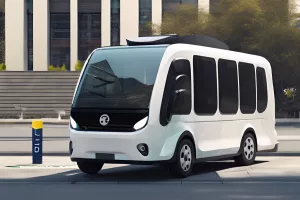CCTV cameras in cities do much more than just prevent crime; they are like unseen guardians watching over everyone. These cameras help keep people safe during emergencies, like fires or accidents, and make sure that city rules are followed. For example, they can quickly spot traffic jams or even burst pipes, allowing for fast responses to problems. As technology improves, these cameras will play an even bigger role in making city life better and safer for everyone.
South Africa is stepping into a new age with Smart ID cards, replacing the old green ID books. These new cards are safer, making it harder for identity theft to happen, and they will help the government serve people better and faster. While the green books will still be valid for now, the government is working hard to get everyone a Smart ID, especially those in remote areas. This change is important for everyone, as it promises a more secure and modern way to prove who you are in a digital world. Overall, the move to Smart ID cards is a big leap toward a safer and more efficient future for all South Africans.
South Africa is gearing up for a big change in how it broadcasts television, aiming to switch from old analogue signals to a brandnew digital system by December 31, 2024. This exciting move promises better picture quality, more channels, and a chance for diverse voices to be heard, making media more inclusive for everyone. As the country prepares to turn off the analogue signals, communities, especially in rural areas, are eager for clearer access to news and entertainment. This transformation not only keeps up with global advancements but also opens doors for creativity and storytelling in a vibrant, multicultural society. With teamwork and innovation, South Africa is stepping into a bright digital future!
South Africa is shining bright in the world of egovernment, jumping to 40th place on the United Nations eGovernment Index in 2024, up from 65th in 2022. This impressive rise shows the country’s strong push for digital change, with a focus on making government services better and more transparent for everyone. The National eGovernment Portal is a key part of this progress, offering 134 online services that make it easier for people to access what they need without long waits. With plans to keep improving, South Africa is setting an example for others in Africa and showing how technology can help everyone in society.
South Africa is taking a big leap into the future with digital driving tests, set to start a pilot phase in 2025. This exciting change will use smart technologies like geofencing and biometric ID to make driving tests safer and fairer. By shifting from paper to digital, the country aims to cut down on cheating and make the process quicker and easier for everyone. As South Africa embraces this new way of testing, it hopes to create a safer driving culture and inspire other nations to follow suit. This move is all about progress, bringing technology closer to the lives of South Africans!
The eKamva Electric Minibus Taxi is a groundbreaking new vehicle in South Africa, designed to make public transport cleaner and more sustainable. With space for 15 passengers and a range of 200 kilometers, it offers a fresh start for a country that has relied on gaspowered taxis for so long. This electric minibus could cut costs and reduce pollution, making urban travel better for everyone. As charging stations pop up and trials begin, South Africa is ready to embrace a brighter, greener future in transportation.
South Africa is boldly stepping into the future with artificial intelligence (AI) to improve its economy and society. The country has set up important institutions like the AI Institute and the Centre for Artificial Intelligence Research that focus on using AI to solve local problems and drive innovation. At the recent SATNAC conference, leaders emphasized the need for ethical AI that respects people’s rights and promotes inclusivity. With a spirit of teamwork and creativity, South Africa is ready to harness AI’s power, ensuring that it benefits everyone as they build a brighter, techdriven future together.
South Africa is making it easier for people to get smart IDs and passports by working with banks. Right now, 30 branches offer these services, and soon, 34 more will join in, making it even more accessible for everyone. This effort not only provides convenience but also ensures that services reach people in both cities and smaller towns. With banks like FNB and Absa leading the way, South Africa is embracing new technology to create a faster and friendlier experience for all its citizens.
In October 2024, the Portfolio Committee on Communications and Digital Technologies embarked on an important journey through South Africa’s Eastern Cape. Their mission was to see how well communication and digital policies were working for the local communities, visiting places like post offices and community radios. They spoke with officials and locals, uncovering both challenges and successes in connecting people and sharing information. This visit was not just a routine check; it showed how vital technology and communication are in empowering communities and strengthening democracy, aiming for a brighter future for everyone.
The City’s customer offices will be temporarily closed from October 5 to 7, 2024, for important system upgrades, but essential services like motor vehicle registration will still be available. This short break is all about making things easier and faster for residents, who can now enjoy online payment options and handy QR codes for quick transactions. Residents can pay their municipal bills at local stores like Shoprite and Pick n Pay, showing how technology is changing city life for the better. Overall, this pause will help the City provide an even smoother experience for everyone in the future!
Starlink is changing how sea rescues happen in South Africa by providing fast and reliable internet through satellites. This technology helps the National Sea Rescue Institute (NSRI) save lives by improving communication during rescue missions, especially in remote areas where it’s hard to connect. It’s not just about rescues; Starlink also promises to boost local economies by improving access to education and other important services. With this new connection, South Africa is on its way to a brighter, safer future for everyone.
Cape Town is leading the way in modern transport with exciting new technologies. They’ve installed thermal sensors at pedestrian crossings to make traffic flow smoother and created a reversible bus lane just for MyCiTi buses, cutting down travel time. To fight theft, the city is using special underground chambers to keep vital equipment safe. As part of Transport Month, local leaders are inviting residents to learn about these innovations and get involved in shaping the city’s transport future. With these changes, Cape Town is on the path to a greener and more efficient way to get around!
South Africa’s Home Affairs @ Home initiative is a bold plan to make public services easier by going digital. Led by Minister Dr. Leon Schreiber, this fiveyear project will let people apply for important documents like IDs and passports from their homes, without needing to visit offices. This change aims to save time, reduce crowds, and improve security using advanced technology like biometrics. By partnering with local banks and retailers, the government hopes to ensure that everyone with internet access can enjoy these modern services, making life simpler for all South Africans and visitors.
Meta has just launched exciting new AI features on WhatsApp that are changing the way we chat and share. Users can now talk to an AI chatbot using their voice, ask questions about images, and even edit photos right in the app! These updates make conversations more lively and creative, turning WhatsApp into a fun and interactive tool. With these cool enhancements, Meta is making technology more accessible and enjoyable for everyone, ushering in a fresh era of digital communication.
Technology is a powerful tool that helps older adults stay connected and engaged. With smartphones and tablets, seniors can easily chat with family, manage their health, and explore new hobbies, making life richer and less lonely. While younger generations master tech with ease, older folks are catching up, learning to navigate the digital world at their own pace. With a little support from family, they can enjoy everything technology has to offer, from online games to virtual book clubs. Embracing these devices not only enhances their daily lives but also strengthens family ties, creating a beautiful exchange of knowledge and love across generations.
Cape Town is making big changes to its DialaRide (DaR) service, which helps people with mobility challenges get around. With a new app and online platform, booking trips and payments will be much easier and faster. This move shows Cape Town’s promise to be an inclusive city, ensuring everyone can travel comfortably. Thandi, a longtime user, is excited about the new system, saying it will make her journey simpler and worryfree. Overall, these updates aim to create a brighter future where every resident can move around with dignity and ease.
















